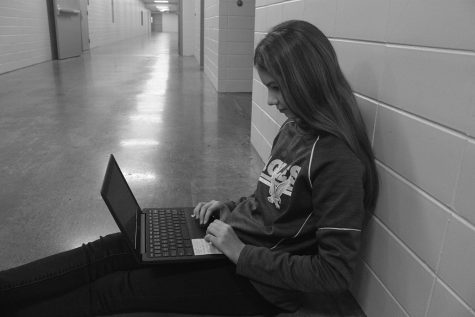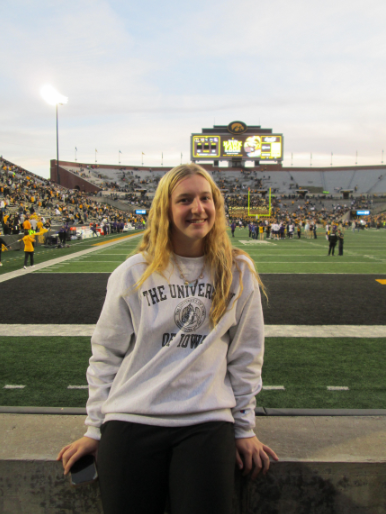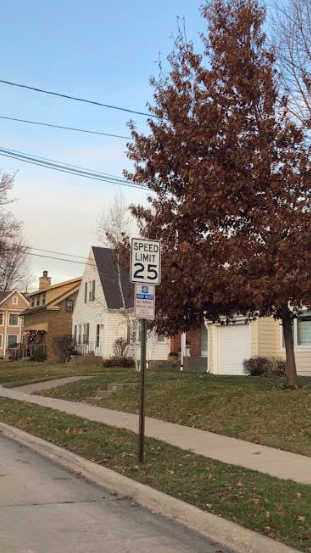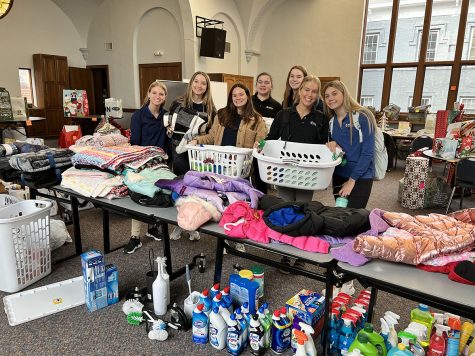Teachers take on cheating
Tough decisions come many times throughout tests: which answers to pick, which not to pick, and whether or not to cheat. Some students do feel pressured to cheat because of the looming deadline, to keep their good grades, and even by other students.
“Other people have asked me before for the answer, but I just say ‘Sorry, I can’t give you the answer,’” says Bria Bauer, ‘26.
Teachers also try to separate students, but with full classrooms with many distractions, teachers find it hard to do just that.
“Ideally… teachers are separating the kids who are taking the tests and having them in an area where they can watch. That gets kind of hard when you have 30 kids in a classroom, and you don’t have the empty seats,” says Ms. Bailey Petersen.
While some ask classmates for the answers, others have found ways around Summit’s browser-lock so that they can google the questions while still in the content assessment.
“On Summit specifically, I know there is a way they [students] can open another browser and kind of go back and forth between the two,” says Petersen.
However, cheating on content assessments, paper tests, and final products all have their consequences. If a student is found cheating on a content assessment, teachers will invalidate it, and the student will have to restart. Additionally, cheating on final products can have more serious consequences.
“There is a conversation with home, as well as me talking with the student. They have to redo the assignment, which is a whole final product, or take a zero for that,” says Petersen.
Wahlert has a very strict no-cheating policy. So much so, that after being found cheating or plagiarizing multiple times, it could lead to expulsion from Wahlert.

Camryn Theisen is a junior at Wahlert Catholic High School, and she plays basketball and softball. In her free time she enjoys travelling and spending...





